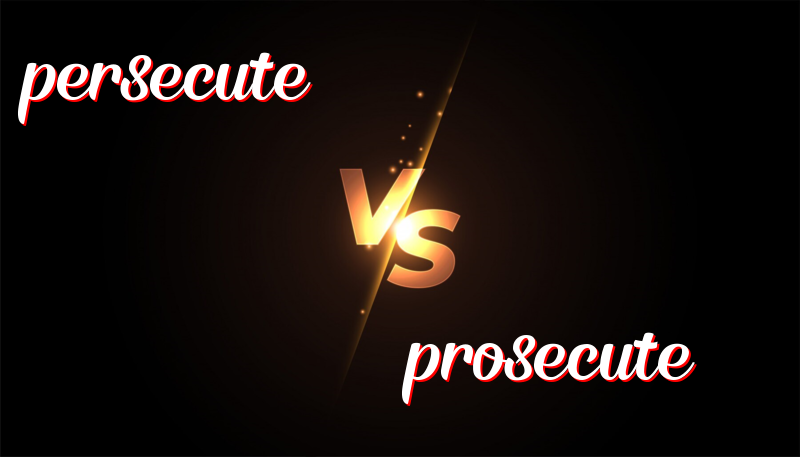英語單詞persecute 與 prosecute的區別
September 07, 2024
區分Persecute和Prosecute的差異
在學習英語過程中常常會碰到persecute和prosecute這兩個詞,雖然它們的拼寫相似,但意思卻大不相同。了解它們的區別對於正確使用這些詞語是非常重要的。
詞語歷史(History of Words)
Persecute源自拉丁語persecut,意思是“追逐”或“逼迫”。用於表示對某人進行不公正、殘酷的對待,通常基於其種族、宗教或政治信仰。
Prosecute則來自拉丁語prosecut,意思是“向前進行”或“實施”。這個詞通常用於法律上的追訴或控告,表示正式對某人提起訴訟。
如何使用(How to Use Them)
Persecute: 這個詞通常用在指某個人或群體被不公平對待。它常涉及虐待、騷擾,或長時間的不公對待。
Prosecute: 這個詞在法律背景下使用,表示對某人提起訴訟或刑事控告,通常由政府或法律機構進行。
記住區別的訣竅(Trick to Remember the Difference)
- 記住persecute中的secu有“追逐”的意思,可以聯想到逼迫、不公平對待。
- 記住prosecute中的pros和ecutor有管理並執行法律程序的意思。
例句(Examples)
Persecute:
- They were persecuted because of their religious beliefs.
他們因為宗教信仰而受到迫害。 - The regime persecutes any political dissenters.
這個政權迫害任何政治異議者。 - Many people were persecuted during the war.
在戰爭期間,許多人遭受迫害。 - She felt persecuted by her classmates.
她感到被同學們逼迫。 - The minority group was persecuted for years.
這個少數群體多年來一直被迫害。
Prosecute:
- The government decided to prosecute the company for environmental violations.
政府決定起訴這家公司違反環境法規。 - He was prosecuted for theft.
他因為盜竊被起訴。 - The lawyer will prosecute the case in court.
律師將在法庭上起訴此案。 - They wanted to prosecute him for fraud.
他們想起訴他詐騙。 - Only the state can prosecute criminal offenses.
只有國家可以起訴刑事犯罪。
總結(Summary)
對於persecute和prosecute這兩個詞,記住它們的區別非常重要。Persecute是指持續地、不公正地對待或迫害某人,而prosecute則是指在法律上對某人提起訴訟。通過記住它們的歷史和使用背景,可以更容易地區分這兩個詞。

Leave a Reply
You must be logged in to post a comment.